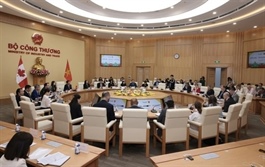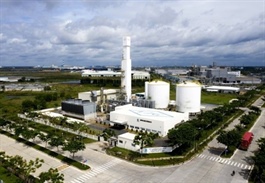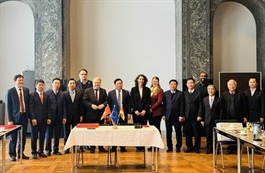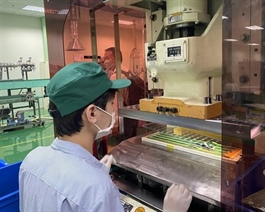Việt Nam, Canada to collaborate for transition to net-zero emissions economy
Việt Nam, Canada to collaborate for transition to net-zero emissions economy
Canada’s commitment to support Việt Nam’s clean energy transition and goals to achieve net-zero, and its willingness to share its expertise and experiences underscore the depth of collaboration between the two countries, visiting Minister of Export Promotion, International Trade, and Economic Development Mary Ng told a workshop in HCM City that ended on Friday.
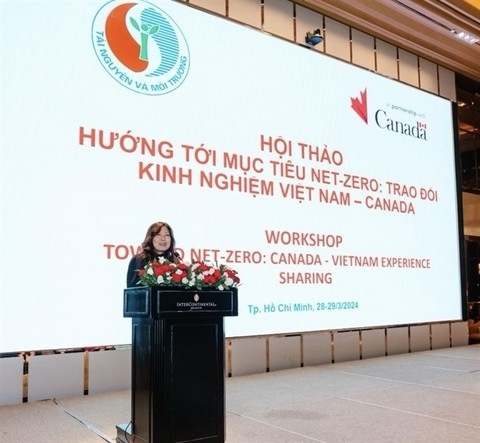
Canadian Minister of Export Promotion, International Trade, and Economic Development Mary Ng delivers her opening remarks at a workshop titled “Towards Net-zero: Canada-Việt Nam Experiences Sharing” held in HCM City on March 28. — VNS Photo Thu Hằng |
In her opening remarks at “Towards Net-zero: Canada-Việt Nam Experiences Sharing,” she said: “Canada and Việt are both committed to combating climate change and transitioning to a net-zero carbon emissions economy.
“Canada has the expertise to help Việt Nam reach its net-zero 2050 targets. From energy storage to biofuel to other greenhouse management solutions, we have the right people who can provide these solutions.
“We want to be your partner of choice in helping you to power a clean and green future.”
Canada was among the countries that helped establish the Just Energy Transition Partnership (JETP) with Việt Nam in 2022, she said.
The JETP and the Emissions Trading Scheme, which establishes carbon pricing, are expected go a long way to driving investment in clean and green technologies, she said.
What that means is opportunities for even deeper collaboration between the two countries, which would help Việt Nam deliver on its climate commitments, she said.
“I’m looking forward to furthering discussions we started last August at the Canada-Việt Nam Clean Energy Partnership Forum.
“And to having Canadian cleantech experts share not only their experience but also the instruments – the regulations, policies and technologies – they used to reduce emissions across Canada’s economy.”
Deputy Minister of Natural Resources and Environment Lê Công Thành said Việt Nam’s national strategy on climate change outlines measures to reduce greenhouse gas emissions by 2050.
It has stepped up technological innovations to increase energy use efficiency, cut production costs, increase competitiveness, and reduce carbon emissions, he said.
Various Government agencies have researched and exploited new and clean renewable energy sources such as solar, wind, hydropower, biomass, and green hydrogen, he said.
In December 2022 Việt Nam agreed to the JETP with the International Partners Group comprising Canada, Denmark, the EU, France, Germany, Italy, Japan, Norway, the UK and the US.
The countries committed support for Việt Nam’s clean energy transition and net-zero goal.
Việt Nam seeks cooperation with Canada in its transition to clean and renewable energies and efforts to improve social and economic adaptability and resilience, he added.
The two-day workshop was organised by the Canadian embassy in Hà Nội and consulate general in HCM City and the Ministry of Natural Resources and Environment on the sidelines of the Team Canada Trade Mission to Việt Nam led by Ng.
It was attended by hundreds of participants from ministries, provincial governments, research institutions, and commercial entities from Canada and Việt Nam and other stakeholders.







